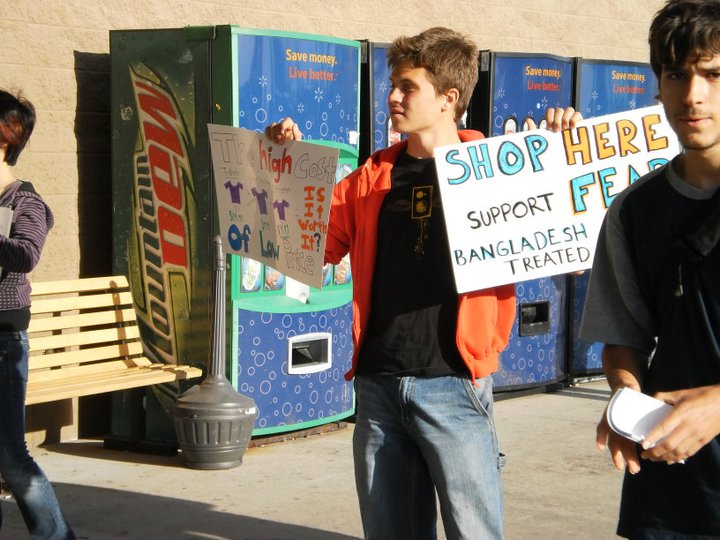WARNING: Never mind the graphic images. Once this gal’s voice enters your head, it ain’t coming out anytime soon.
When your humble blogger was a Cub Scout, his pack watched an anti-smoking film that contained his first exposure to tracheotomy. The video featured a guy smoking a cigarette through a hole in his neck, which was followed by a helpful if nauseating cross-section diagram that showed how surgeons somehow detached the patient’s windpipe from his blackened larynx and had it connect to the outside world at a point of contact somewhere near his Adam’s apple. If the description sickens you, you should have seen the video.
The happy result is that no one in that church basement ever lit up a cigarette.
Which of course is a lie. Most of those kids ended up becoming high school classmates, and several turned into pack-a-day smokers. One of the adults in charge of the Cub Scout meeting smoked during the video, never reasoning that a) maybe it’d have been better to have instead smoked after the kids went home and b) him lighting up in front of everyone sent a louder message than did the recorded image of a cancer patient.
This is a personal finance website, and this isn’t an anti-smoking screed: hell, the more you smoke the more elbow room the rest of us eventually enjoy. But there’s a point to be made.
Look at our cover girl, Terrie, 51. Doing a 180º isn’t going to make a difference at this point. She can lead the healthiest lifestyle imaginable: eat a whole foods diet, drink nothing but ionized water, run 5 miles every morning (notwithstanding that she now has the lung capacity of a web-footed salamander), and it won’t matter. Nothing’s going to regrow the hair, or the lower jaw, or the throat flesh. She’s a casualty waiting to happen, and might even be dead by the time you read this. People who are dumb enough to smoke, largely don’t care.
For another example, this one from personal knowledge, here’s a family friend who smoked himself to death. His house had more full ashtrays than ours has electrical outlets. The end came a few months after the picture was taken, but 3 years after he’d had the first lung removed. (They don’t remove a second lung.) A fresh start, such as it was, and this was how he expressed his gratitude to the surgeons who prolonged his life.
The same problem of exacerbation applies to finances, too. Making a $900 payment on the credit card you owe $19,489.34 on means next to nothing. It’s like coughing up something black one morning, seeing the face of God in the mucous, then deciding that from this day forward that you’re only going to smoke menthols.
Lot of help that is, jerkface. I already have a $19,489.34 balance on my VISA card. (But only $8,593.32 on my MasterCard! Why can’t you look at the positive instead?)
Depending on your attitude, you’re going to find the following advice either patronizing or useful: You won’t get your hand bitten off the 20th time if you don’t put it in the leopard cage the 1st time.
Yeah. Habits start off annoying, and eventually become effortless. Whether it’s 20 minutes of yoga every morning, taking your dog for his daily constitutional, even something as mundane as brushing your teeth; you do it because you should, and soon enough you don’t think twice about it, to the point where omitting the repeated behavior becomes more of an inconvenience than performing it does.
You see what we did there? Substitute something negative (smoking, beating your kids, financing everyday purchases) in the list of habits in the preceding paragraph. If you habitually incur credit-card debt, or habitually squander a fixed ratio of your salary on gambling, it’ll feel awkward to start not doing so.
The number of 50-year-olds who overcame decades of financial stupidity to build lasting wealth is virtually zero. Gaining realization is something the younger and more impressionable folks do. So can you change? Probably not. But if you’re sincere about wanting to, the patented secret method is to simply do it. While financial trouble isn’t easy to dig out of, it’s at least possible to do so – unlike turning black lung tissue into pink.
If any of this resonates, or hits uncomfortably closely, congratulations! You’re a test case. Downsize. It’s only temporary, anyway. The luxury townhome you’re renting and can barely afford? Suck it up and take on a roommate. Don’t think of your lifestyle being cramped, think of the few hundred dollars a month you’re now receiving and weren’t before. Same goes for the Target “retail therapy” and peer pressure group dinner dates at restaurants you’d never frequent on your own.
No one wants to lay the foundation, but everyone wants to live in the penthouse. You can’t get there without the necessary intermediate steps. Building wealth, employing leverage, compounding your net worth – none of that works unless your net worth is positive in the first place. Otherwise you’re just making a bad situation worse.
You can cut expenses. Not like that kook at The Simple Dollar who counts the thousandths of pennies it costs him each time he opens his fridge, but rather in large and impactful ways. You can find masses of cash in your portfolio that are just sitting there instead of being put to work – e.g. the savings account that you could easily turn into a money market account or a mutual fund. What the hell is stopping you?




